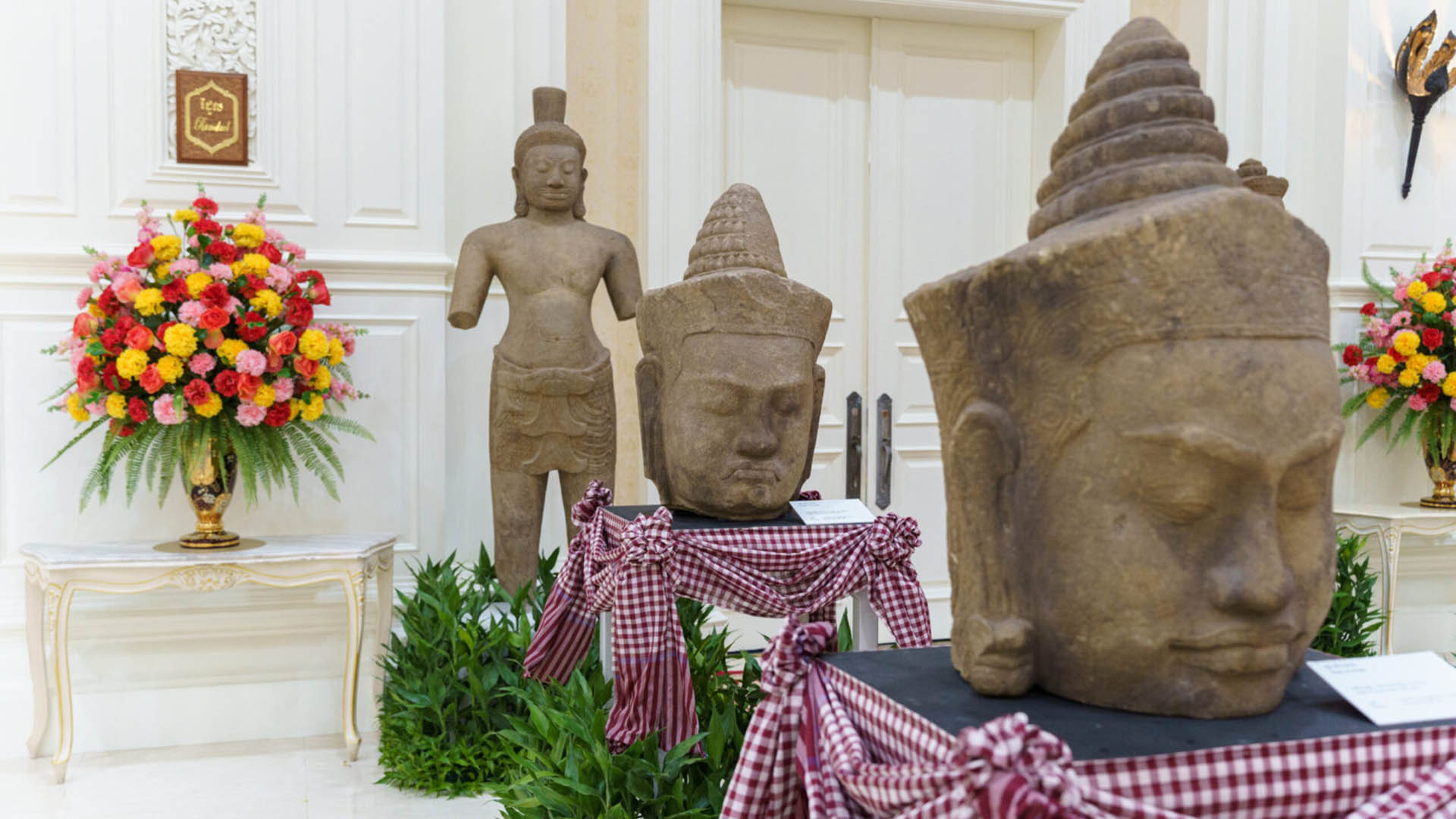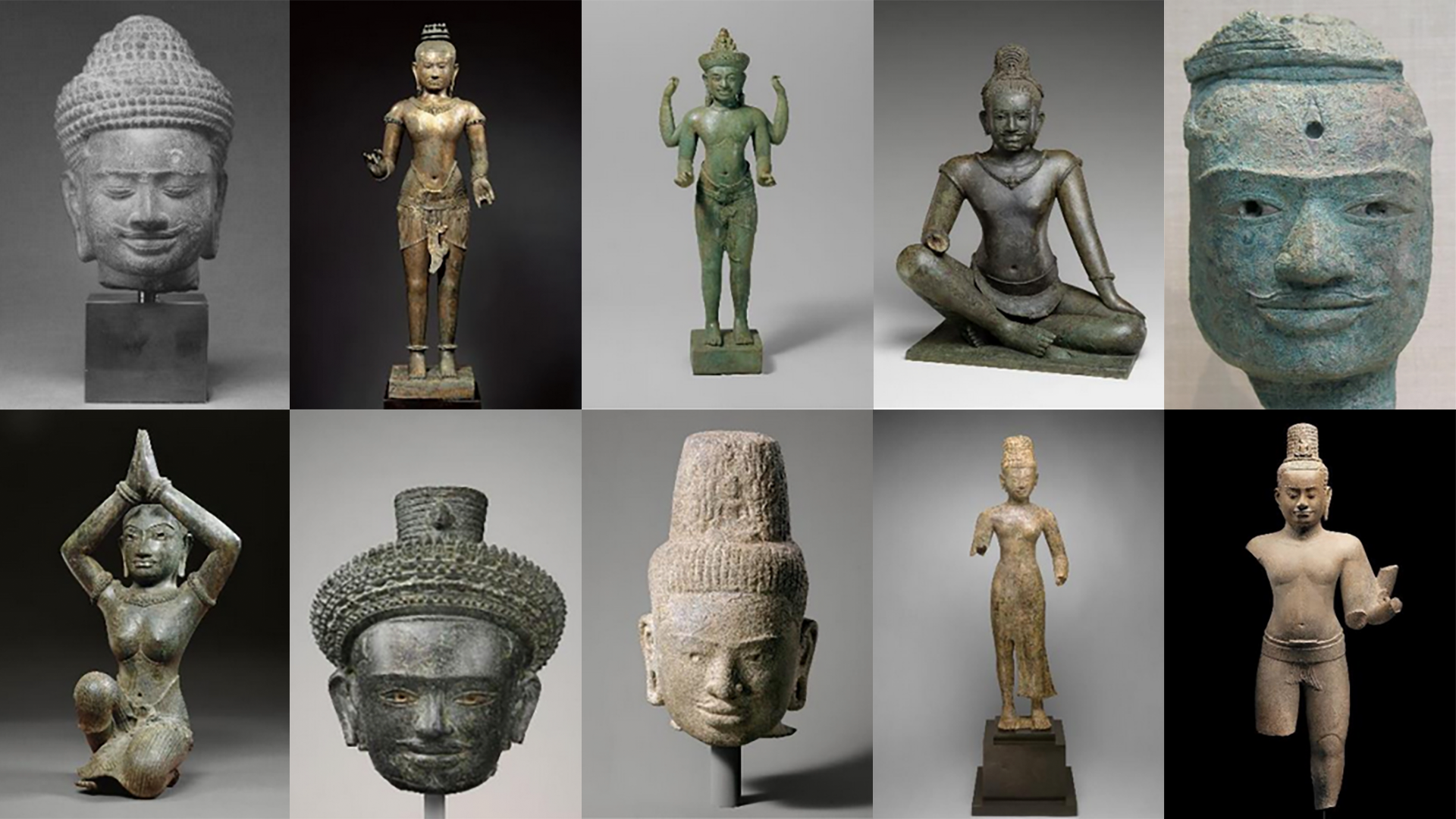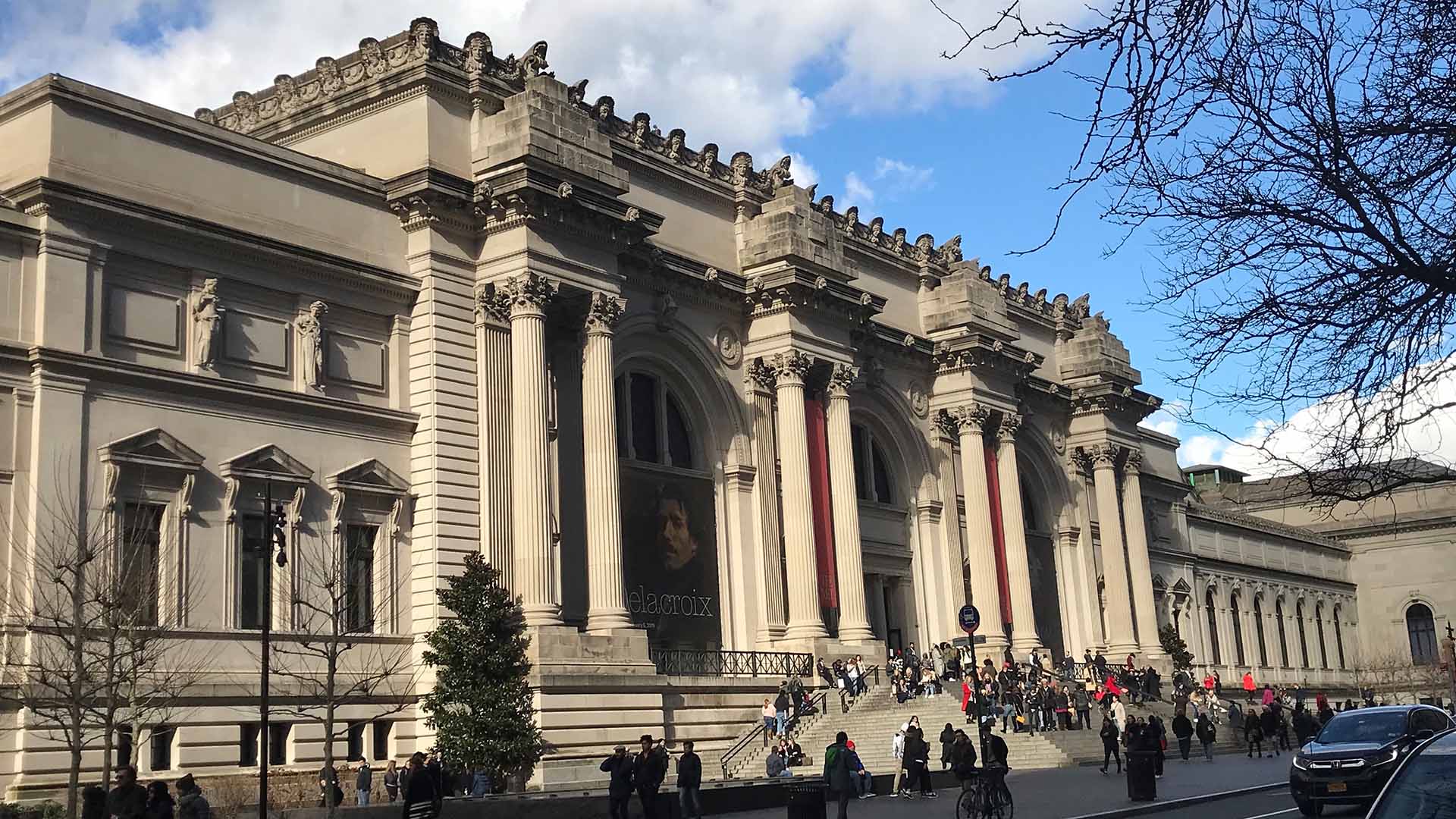Month: September 2024
A federal indictment unsealed on Wednesday alleges that a Tennessee-based media company which played home to several prominent right-leaning online commentators was secretly a Russian government-backed influence operation. The company is accused of receiving nearly $10 million from employees of Russia Today (RT), a Russian state-backed media company, as part of “a scheme to create and distribute content to U.S. audiences with hidden Russian government messaging,” according to Attorney General Merrick Garland.
The allegations were part of a broader effort against Russian influence sites seeking to subvert the elections.
Tenet Media worked with American conservative or heterodox media figures, including Dave Rubin, Benny Johnson, Tim Pool, and Lauren Southern, who variously present themselves as independent journalists, documentarians, and political commentators. Not all of them immediately commented on having been publicly linked to a foreign propaganda site, but Johnson soon tweeted that he and other influencers had been “victims in this alleged scheme.” In his own tweet, Pool echoed that line, writing, in part, “Should these allegations prove true, I as well as the other personalities and commentators were deceived and are victims.” Rubin, too, described himself as a victim, adding, “I knew absolutely nothing about any of this fraudulent activity. Period.”
The indictment, filed in the Southern District of New York, alleges that RT and two specific employees, Kostiantyn “Kostya” Kalashnikov and Elena “Lena” Afanasyeva, worked to funnel money to Tenet Media as part of a series of “covert projects” to shape the opinions of Western audiences. RT has faced cancellations and sanctions in the United States, Europe, Canada, and the UK after Russia’s invasion of Ukraine; federal authorities allege those travails led the company to instead create more covert means of influencing public perception.
While Tenet is only referred to in the indictment as “U.S. Company 1,” details made it readily identifiable. The indictment alleges that Tenet’s coverage “contain[ed] commentary on events and issues in the United States, such as immigration, inflation, and other topics…consistent with the Government of Russia’s interest in amplifying U.S. domestic divisions.”
The indictment also alleges that not everyone affiliated with Tenet was unaware of the scheme, stating that “Founders 1 and 2” of the company knew the source of their funding. The founders of Tenet Media are Lauren Chen and her husband; Chen is a conservative influencer and YouTuber who’s hosted a show on Blaze TV and who’s affiliated with Turning Point USA. Her husband, Liam Donovan, identifies himself on Twitter as the president of Tenet Media.
The indictment alleges that the RT officials and Founders 1 and 2 “also worked together to deceive two U.S. online commentators (“Commentator-I” and “Commentator-2″), who respectively have over 2.4 million and 1.3 million YouTube subscribers.” Dave Rubin has 2.4 million YouTube subscribers, while Tim Pool has 1.37 million.
The indictment indicates that even some of the people working at Tenet found their content heavy-handed. On February 15 of this year, Afanasyeva, using the name Helena Shudra, shared a video in a company Discord channel of what the indictment calls “a well-known U.S. political commentator visiting a grocery store in Russia.” While he’s not named in the indictment, it clearly matches Tucker Carlson, who toured such a grocery store, declaring himself slackjawed in wonder at how nice it was.
“Later that day,” the indictment adds, “Producer-I privately messaged Founder-2 on Discord: ‘They want me to post this’—referencing the video that Afanasyeva posted—but ‘it just feels like overt shilling.’ Founder-2 replied that Founder-I ‘thinks we should put it out there.’ Producer-I acquiesced, responding, ‘alright I’ll put it out tomorrow.’”
Tenet’s recent content on sites like YouTube, Twitter, and TikTok has been heavily larded with critical commentary about Kamala Harris. Conservative political commentator and documented plagiarist Benny Johnson, for instance, recently starred in a video about her “empty words.”
The allegations against Kalashnikov and Afanasyeva, who are charged with conspiracy to violate the Foreign Agents Registration Act (FARA) and conspiracy to commit money laundering, were part of a broader effort against what US authorities allege were Russian influence sites seeking to subvert the elections. Earlier on Wednesday, the Justice Department announced it had seized 32 internet domains used in what they called “Russian government-directed foreign malign influence campaigns.”
At an Aspen Institute event on Wednesday afternoon, a DOJ official, Deputy Attorney General Lisa Monaco, said the Russians charged in the case “used American-based individuals and entities to exploit, frankly, our free society to try to undermine our election,” including by deploying “unwitting influencers to push Russian propaganda and pro-Russian messaging.”
One of the last things Tenet posted on their social media sites before the indictment was unsealed concerned—ironically enough—a government employee accused of secretly acting as a foreign agent. Tenet posted a video of Linda Sun, a former aide to New York governors Andrew Cuomo and Kathy Hochul who has been charged with using her position to benefit the Chinese government. Tenet seemed to suggest that a few words Sun offered on a video call endorsing diversity, equity, and inclusion measures were part of an alleged foreign-backed messaging plot.
“Why would the Chinese government want to push DEI in America?” a tweet from Tenet read.
Abby Vesoulis contributed reporting.
Update, September 4: This story has been updated to include Johnson, Rubin and Pool’s comments.
New York’s Metropolitan Museum of Art expelled an attorney for the Cambodian government from a Tuesday meeting between museum officials and the representatives of Cambodia’s culture ministry, heightening tensions in a yearslong campaign to press the museum to return Khmer treasures to their home country.
The attorney, Brad Gordon, has been one of the most prominent faces of Cambodia’s national effort to trace lost ancient artifacts looted during years of turbulent civil war. Gordon has worked for the Cambodian government in that capacity for a decade. Many of the pieces were trafficked to the United States and other Western nations and sold to ultrawealthy art patrons and some of the world’s largest museums, including the Met.
Officials from Cambodia’s Ministry of Culture and Fine Arts visited the Met on Tuesday as part of a U.S. State Department program that provides tours of U.S. institutions for foreigners. While the Cambodian delegations’ itinerary included stops at multiple American museums, their visit to the Met held special significance — and sensitivity — because of Cambodia’s extensive push to reclaim cultural objects from the museum.
In recent years, the museum’s Cambodian pieces have been a focal point of increasing scrutiny on the Met’s collection by journalists and law enforcement. In 2021, the International Consortium of Investigative Journalists and its partners began asking the Met questions about more than a dozen pieces in its collection that had passed through the hands of accused antiquities trafficker Douglas Latchford or his associates. This followed a long run of attention from online sleuths, including the Chasing Aphrodite blog. Latchford was indicted in 2019 by federal prosecutors in New York and accused of helping orchestrate the large-scale looting of Cambodian cultural heritage decades ago. Latchford died in 2020 before the case against him proceeded.
In March 2023, ICIJ and media partners found at least 1,109 pieces in the Met’s collection that were previously owned by individuals who had been either indicted or convicted of antiquities crimes. The museum subsequently hired a team of researchers to vet its collection, and in December it announced it would repatriate more than a dozen works to Cambodia. But that didn’t end the saga. The Cambodian government claims that dozens more of its stolen treasures remain in the Met’s collection, and it wants them back.
Gordon said that when he arrived at the Met on Tuesday, he was led to a conference room where the Cambodian delegation would meet with Met officials. Immediately upon arriving, he said, two Met attorneys approached him and asked to speak with him privately outside the conference room. He said he was then asked to gather his belongings. From there, the officials told Gordon he was barred from the meeting before a guard escorted him out of the museum, according to his account.
A Met spokesperson said that Gordon had not been invited to the meeting and was “asked politely to leave.” The spokesperson said that afterward, “The Met continued amicable discussions with their Cambodian colleagues, including a gallery tour and agreement to meet further to expand cooperation.”
Among the planned attendees at the meeting was Lucian Simmons, the Met’s new head of provenance research. Last year the museum hired Simmons to lead a team of researchers to scour and identify potentially problematic pieces in the museum’s collection. Simmons’ hiring was portrayed in the press as a sign of the museum bolstering its approach toward addressing concerns over trafficked art in its sprawling collection.
Gordon said that the exact agenda of yesterday’s meeting was unclear but related to conservation issues. He told ICIJ that he had been specifically asked to join the meeting by H.E. Hab Touch, a senior official in the Cambodian culture ministry, who is leading the delegation.
“As you know, we are in the midst of negotiations for the return of additional stolen artefacts from the Met,” Gordon said in an email to several State Department officials that he shared with ICIJ. He added that because the situation with the Met was delicate, the Cambodian delegation had been “very clear that they wanted me as their counsel to be present” in the meeting.
Gordon said he pleaded with the Met to let him stay in the meeting, with a member of the delegation even calling Cambodia’s minister of culture to affirm the importance of his attendance. Gordon added that the Met officials offered no explanation for his expulsion apart from saying it was a State Department meeting.
“After the MET rejected the Minister’s request for me to attend, I agreed to leave,” Gordon told the State Department. “I have never felt so humiliated in my life.”




